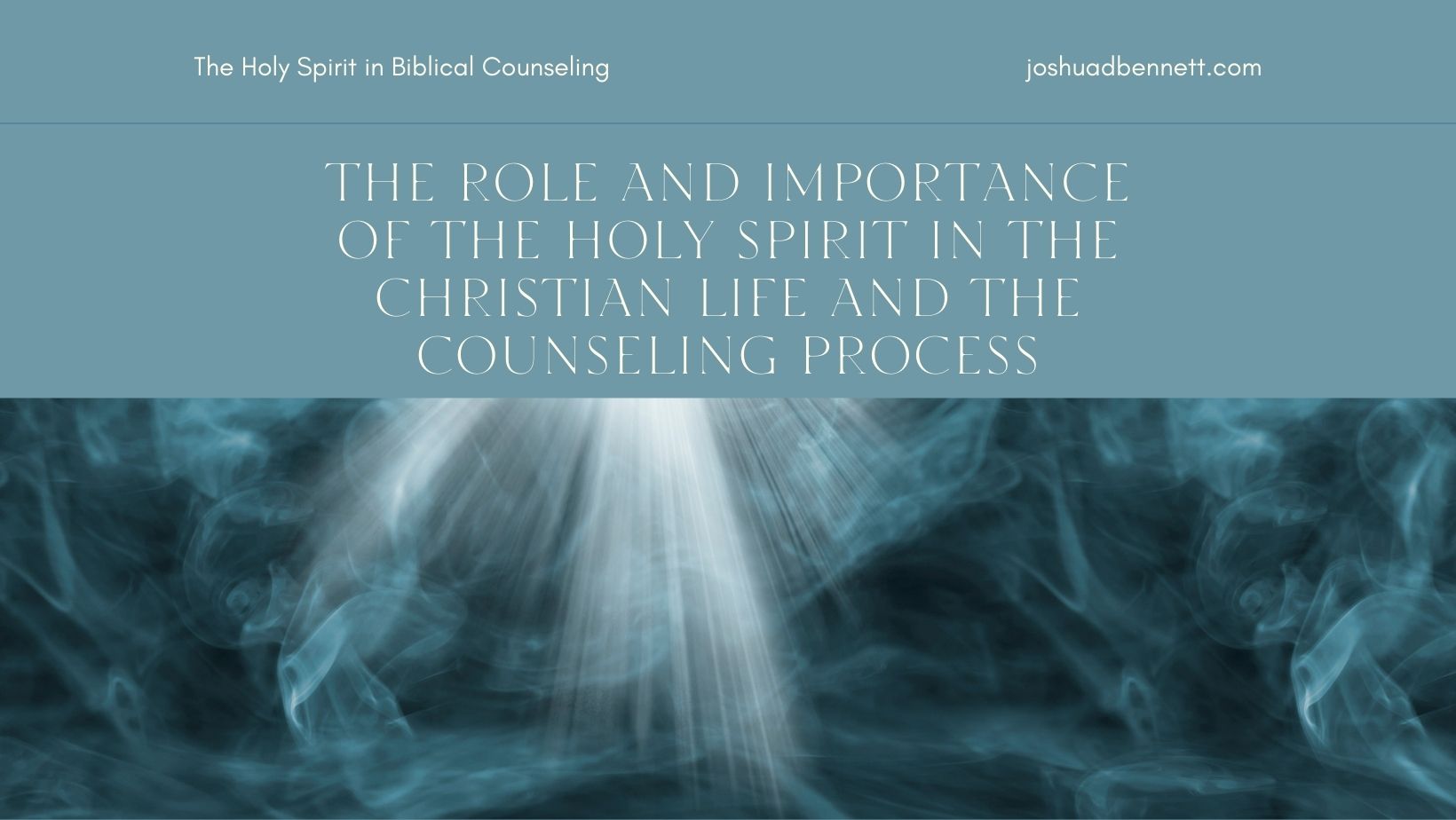The role of the Holy Spirit in a believer’s life begins when he is an unbeliever. The Holy Spirit is in the world actively convicting sinners of their rebellion against God and their lack of faith in God’s Son (John 16:8). He then renews and regenerates individuals so that they have a new heart to believe in and love Jesus (Titus 3:5) The Holy Spirit then takes up residence in the believer, indwelling him, and testifying that he is a child of God (Titus 3:6; Rom. 8:15).
The Holy Spirit is the believer’s helper and teacher, leading him into all truth (John 14:15,26). The Holy Spirit is also actively at work in the believer to sanctify him (2 Thes. 2:13; Rom. 15:16; Gal. 5:16-18). Second Corinthians 3 tells us that the believer is transformed into the image of Christ by the Spirit of the Lord (2 Cor. 3:17-18). Jay Adams points out in his book Competent to Counsel that every goal or character trait or good work that is the aim in counseling, whether it is greater love or more peace or deeper joy, is said to be the fruit of the Holy Spirit (Adams, Competent to Counsel, p20). Galatians enumerates the fruit that grows in the believer’s life because of the work of the Holy Spirit: love, joy, peace, patience, kindness, goodness, faithfulness, gentleness, and self-control (Gal. 5:22-23 CSB). Adams goes on to warn about the futility and rebellion of attempting to generate this fruit in one’s life apart from the Spirit of God (Adams, p20). The grace of God through the Spirit of God is the only true and lasting path for positive change in a person’s life.
For biblical counseling, this point about the necessity of the work of the Spirit is critical to remember. Paul warns the Galatians about trying to continue in the power of their flesh after having begun only by the power of the Spirit (Gal. 3:1-3). If a counselor does not properly set the expectations for change squarely within the sovereign work of the Holy Spirit, or if the counselee tries to fix his life by pulling up his own bootstraps, then the only success will be legalistic shackling and any failure will lead to seven-fold worse problems than before (Matt. 12:43-45; Adams, p22). But where the Spirit of the Lord is, there is freedom (2 Cor. 3:17). The Holy Spirit has set the believer free from the law of sin and death resulting in his sanctification and eternal life (Rom. 8:2; 6:22)! Relying on the power of the Spirit is not a shot in the dark or last-ditch effort that should leave either the counselor or counselee discouraged. God has begun his work in the believer, and he is faithful to complete it (Phil. 1:6; 1 Thess. 5:23-24). He is able to keep the counselee from stumbling (Jude 24-25).
Pursuing transformation of a counselee’s life by the power of the Spirit is miraculous but it is not mystical or out of reach. There is an ordinariness about welcoming the Holy Spirit’s work in your life. That’s because, as Adams mentions, the Holy Spirit works through ordinary means like prayer, Bible reading, preaching, sacraments, and fellowship with other believers (Adams, 21). This is not surprising since the miracle of salvation itself is delivered through the ordinary means of sharing the gospel in the preaching of the Word of God (Rom. 10:14-15). Indeed, the biblical teaching on the importance and necessity of the work of the Holy Spirit in our lives to sanctify us should bring to us a hope that does not disappoint (Rom. 5:1-5).
